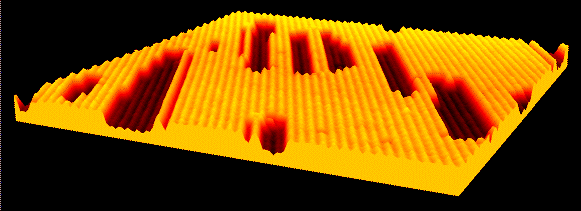
LORENTZ CENTER WORKSHOP

COLLECTIVE ASPECTS OF STOCHASTIC
NON-EQUILIBRIUM PHENOMENA
AT SURFACES AND INTERFACES
Lorentz Center, Leiden University, 14-25 June 2004
Motivation and Scope
The purpose of the meeting is to bring together experts in experiment,
theory, and computer simulation, working on collective stochastic phenomena
in condensed matter physics, in particular in surface and interface
physics, to intensify interactions between these communities and facilitate
new joint projects.
Stochastic, non-equilibrium processes form a popular theme in modern research
in condensed matter and statistical physics. The two-dimensional
playground constituted by the surfaces and interfaces of condensed
matter systems provides a multitude of exciting and highly relevant experimental
and practical realizations of a variety of models considered in analytical theory
and computer simulations. Typical examples of the processes of
interest for the proposed workshop are surface diffusion, crystal
growth or erosion, surface phase transitions, chemical reaction front dynamics,
contact dynamics and friction.
Where the experimental focus in this area has long been on the
atomic-scale detail of these processes, the more sophisticated
experimental tools and improved analysis techniques available
today are enabling new types of investigations, covering the full
hierarchy of length scales from that of a single atom to that of
the resulting collective response of the two-dimensional system. A
similar development can be observed in ab initio theory (e.g. DFT)
and computer simulations, which nowadays can handle sufficiently
large systems over sufficiently long time scales, by virtue of the
available computer power and of newly developed, smart
computational strategies, that they both incorporate the essential
microscopic aspects and capture the emerging collective behavior
on larger length and time scales. At the statistical mechanics
side, progress in the fundamental understanding of collective
phenomena in non-equilibrium statistical processes has been rapid,
due to the application of scaling theory, generalized from its
roots in equilibrium phase transitions during the last quarter of
the 20th century, numerical simulations, and exact solutions
(e.g., the Bethe Ansatz method in specific one-plus-one
dimensional processes, like KPZ growth and asymmetric exclusion
transport processes).
In addition to being scientifically highly challenging, the new
approaches in experiment, theory, and computer simulations embody the essential ingredients of
the translation of basic,
atomic- and molecular-scale phenomena to the mesoscopic
and macroscopic regime of the response of a complete system to
non-equilibrium conditions,
which will become important for a wide variety of smart,
future technologies.
Specific examples of links that will be explored are:
Experiments on friction and models of driven diffusive flow.
Experiments on catalytic surface reactions and models of absorbing state dynamic phase transitions.
Crystal growth in the presence of additional degrees of freedom, such as surface reconstruction and random impurities.
Participants:
This is an open workshop, limited only by the capacity of the facilities,
a maximum of 60 particiapants.
The number of invited participants, of the order of 21-24,
will be chosen equally between experimentalists,
theorists, and computer simulation experts. Each invitee will present
an overview-type talk about their specialty.
We invite all our coleagues, in particular those in the
Netherlands, to attend our workshop.
We specifically encourage junior scientists (graduate students
and postdocs) to attend.
return to the index page
|

